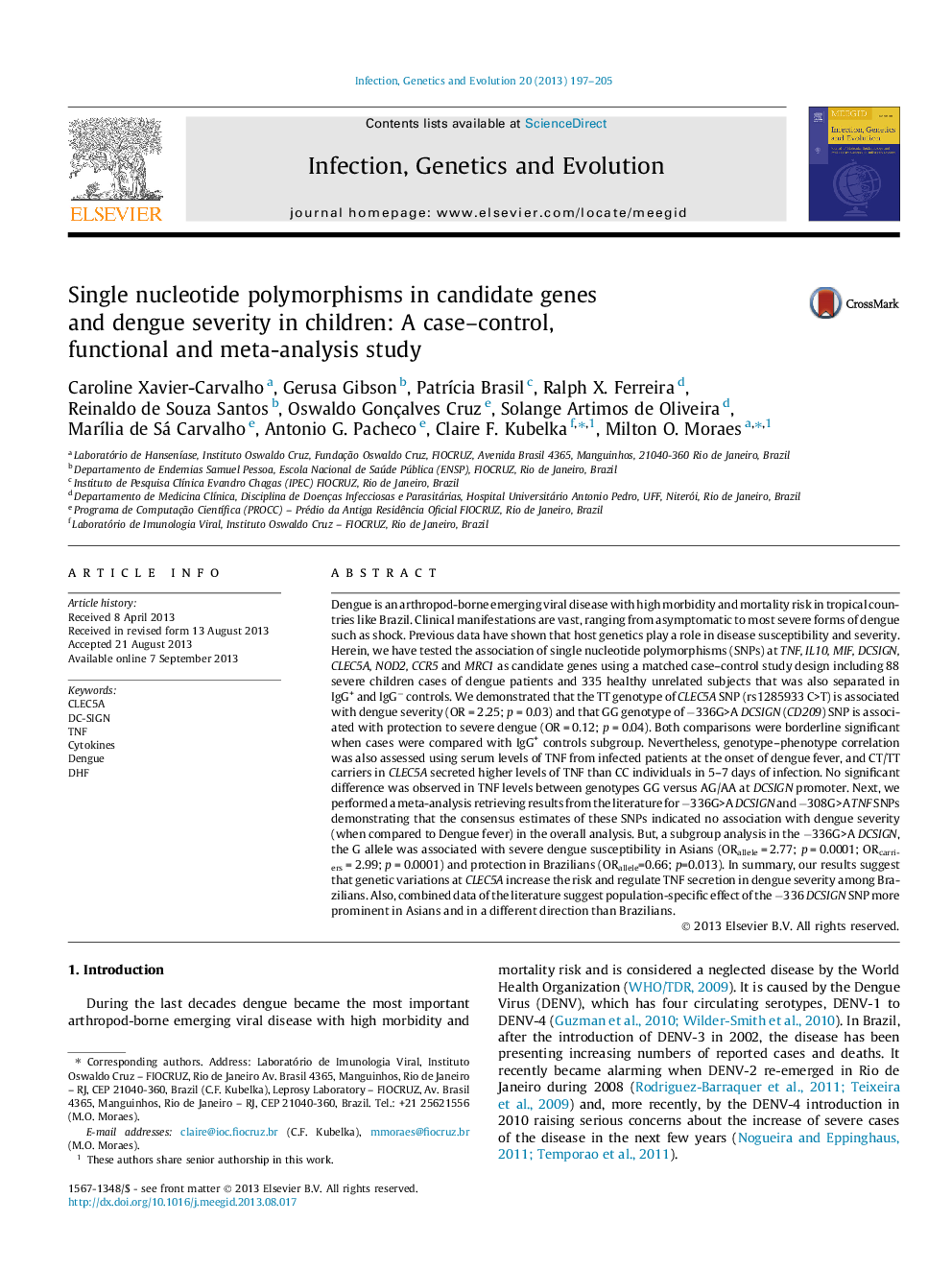| کد مقاله | کد نشریه | سال انتشار | مقاله انگلیسی | نسخه تمام متن |
|---|---|---|---|---|
| 5909979 | 1570183 | 2013 | 9 صفحه PDF | دانلود رایگان |
- The CLEC5A rs1285933 SNP was associated with severe dengue susceptibility.
- CLEC5A rs1285933 CT/TT carriers produced higher levels of TNF than non-carriers.
- The DCSIGN rs4840803 SNP was associated with dengue protection.
- Meta-analyses suggest that association of DCSIGN â336G>A SNP is population specific.
- TNF â308G>A SNP was not associated with dengue severity after meta-analysis.
Dengue is an arthropod-borne emerging viral disease with high morbidity and mortality risk in tropical countries like Brazil. Clinical manifestations are vast, ranging from asymptomatic to most severe forms of dengue such as shock. Previous data have shown that host genetics play a role in disease susceptibility and severity. Herein, we have tested the association of single nucleotide polymorphisms (SNPs) at TNF, IL10, MIF, DCSIGN, CLEC5A, NOD2, CCR5 and MRC1 as candidate genes using a matched case-control study design including 88 severe children cases of dengue patients and 335 healthy unrelated subjects that was also separated in IgG+ and IgGâ controls. We demonstrated that the TT genotype of CLEC5A SNP (rs1285933 C>T) is associated with dengue severity (OR = 2.25; p = 0.03) and that GG genotype of â336G>A DCSIGN (CD209) SNP is associated with protection to severe dengue (OR = 0.12; p = 0.04). Both comparisons were borderline significant when cases were compared with IgG+ controls subgroup. Nevertheless, genotype-phenotype correlation was also assessed using serum levels of TNF from infected patients at the onset of dengue fever, and CT/TT carriers in CLEC5A secreted higher levels of TNF than CC individuals in 5-7 days of infection. No significant difference was observed in TNF levels between genotypes GG versus AG/AA at DCSIGN promoter. Next, we performed a meta-analysis retrieving results from the literature for â336G>A DCSIGN and â308G>A TNF SNPs demonstrating that the consensus estimates of these SNPs indicated no association with dengue severity (when compared to Dengue fever) in the overall analysis. But, a subgroup analysis in the â336G>A DCSIGN, the G allele was associated with severe dengue susceptibility in Asians (ORallele = 2.77; p = 0.0001; ORcarriers = 2.99; p = 0.0001) and protection in Brazilians (ORallele=0.66; p=0.013). In summary, our results suggest that genetic variations at CLEC5A increase the risk and regulate TNF secretion in dengue severity among Brazilians. Also, combined data of the literature suggest population-specific effect of the â336 DCSIGN SNP more prominent in Asians and in a different direction than Brazilians.
Journal: Infection, Genetics and Evolution - Volume 20, December 2013, Pages 197-205
